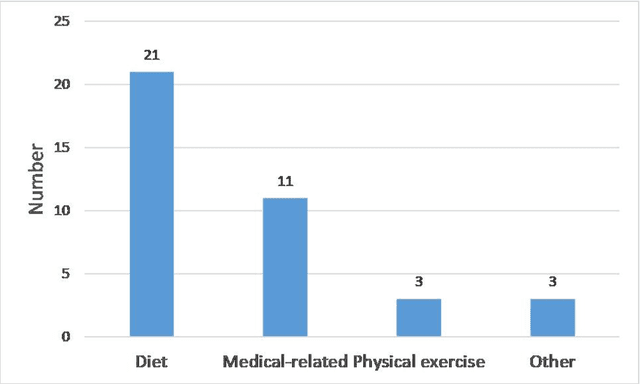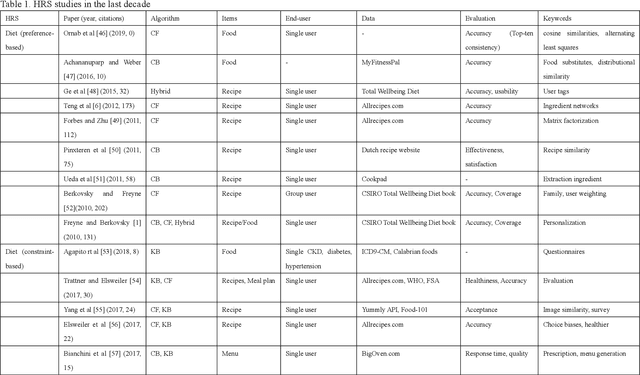Do recommender systems function in the health domain: a system review
Paper and Code
Jul 26, 2020

Recommender systems have fulfilled an important role in everyday life. Recommendations such as news by Google, videos by Netflix, goods by e-commerce providers, etc. have heavily changed everyones lifestyle. Health domains contain similar decision-making problems such as what to eat, how to exercise, and what is the proper medicine for a patient. Recently, studies focused on recommender systems to solve health problems have attracted attention. In this paper, we review aspects of health recommender systems including interests, methods, evaluation, future challenges and trend issues. We find that 1) health recommender systems have their own health concern limitations that cause them to focus on less-risky recommendations such as diet recommendation; 2) traditional recommender methods such as content-based and collaborative filtering methods can hardly handle health constraints, but knowledge-based methods function more than ever; 3) evaluating a health recommendation is more complicated than evaluating a commercial one because multiple dimensions in addition to accuracy should be considered. Recommender systems can function well in the health domain after the solution of several key problems. Our work is a systematic review of health recommender system studies, we show current conditions and future directions. It is believed that this review will help domain researchers and promote health recommender systems to the next step.
 Add to Chrome
Add to Chrome Add to Firefox
Add to Firefox Add to Edge
Add to Edge